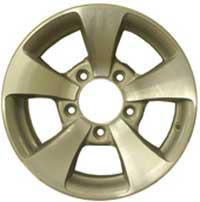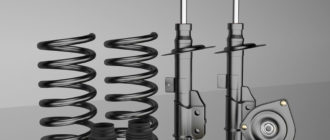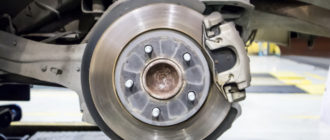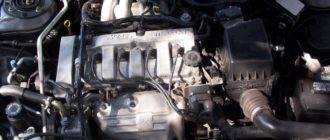A catalytic converter is an essential component of your vehicle’s exhaust system. It helps to reduce harmful emissions by converting carbon monoxide and other pollutants into less harmful gases. However, over time, the catalytic converter may begin to fail, which can cause a wide range of issues. In this guide, we’ll explore how to recognize the signs of a failing catalytic converter and what steps you can take to repair it.
One of the most common signs of a failing catalytic converter is a decrease in performance. Your vehicle may feel sluggish or have a noticeable decrease in power. Additionally, you may notice a decrease in fuel economy or the smell of rotten eggs coming from your exhaust.
Another sign of a failing catalytic converter is the check engine light coming on. Your vehicle’s onboard computer is programmed to detect any issues with the catalytic converter, and if it senses a problem, it will illuminate the check engine light on your dashboard.
If you suspect that your catalytic converter is failing, it’s essential to have it checked out by a professional mechanic. While there are some steps that you can take to extend the life of your catalytic converter, in most cases, it will need to be replaced to restore your vehicle’s performance and reduce emissions.
By recognizing the signs of a failing catalytic converter early, you can avoid costly repairs and ensure that your vehicle is running at peak performance. With the help of a qualified mechanic, you can get your catalytic converter repaired or replaced and enjoy a safer, more environmentally-friendly driving experience.

source: https://www.carfax.com/blog/catalytic-converters
Signs of a Failing Catalytic Converter: A Guide to Repair
A catalytic converter is an essential part of a vehicle’s exhaust system that helps to reduce harmful emissions. It is responsible for converting toxic gases into less harmful ones. Without it, your car would be a significant contributor to air pollution. That’s why it is crucial to recognize the signs of a failing catalytic converter and have it repaired as soon as possible.
One of the most noticeable signs of a failing catalytic converter is a reduction in engine performance. Your car may stall, hesitate, or lack power. You may also notice a drop in fuel efficiency. This is because a failing converter restricts exhaust flow, causing the engine to work harder and use more fuel. Another sign to look out for is an increase in exhaust emissions. You may notice a strong smell, dark smoke, or unusual noises coming from your car.
- Check Engine Light – If your car’s check engine light is on, it could be a sign of a failing catalytic converter. The sensors in the exhaust system detect any issues with the converter and trigger the light.
- Rattling Noise – A failing converter can sometimes produce a rattling noise, which occurs when the internal components break apart and move around inside the casing.
- Failed Emissions Test – If your car fails an emissions test, it’s likely due to a failing converter. The emissions test measures the amount of harmful gases your car emits into the atmosphere.
If you notice any of these signs, it’s crucial to have your catalytic converter checked by a professional. Repairing or replacing a faulty converter is essential not only for the environment but also for the proper functioning of your vehicle. Neglecting to do so can cause severe damage to your engine and other parts of your car.
It’s important to maintain your catalytic converter properly to prevent it from failing prematurely. Regularly scheduled maintenance, such as oil changes and tune-ups, will ensure that your engine is running smoothly and not causing excess wear and tear on the converter. Consult with your mechanic about the best ways to take care of your converter and keep it in top condition.
Signs of a Failing Catalytic Converter: What to Look for
A catalytic converter is an essential component of your car’s exhaust system that helps reduce harmful emissions. However, over time it may start to fail, causing potential damage to the environment as well as your vehicle. Recognizing the signs of a failing catalytic converter is crucial to avoid costly repairs and keep your car running efficiently.
One of the most common signs of a failing catalytic converter is a decrease in engine performance. Your vehicle may struggle to accelerate or may experience a significant decrease in fuel efficiency. You may also notice strange smells coming from your car, such as a rotten egg odor, which could indicate a problem with your converter. In some cases, your car may even fail its emissions test, signaling the need for a replacement catalytic converter.
If you suspect a problem with your catalytic converter, it’s essential to get it checked out by a professional mechanic. Ignoring the signs of a failing converter can lead to further damage to your vehicle and significantly impact your car’s performance. With proper care and maintenance, you can keep your converter working efficiently, promoting a cleaner environment while extending the lifespan of your vehicle.
- Decreased engine performance
- Strange odors
- Failed emissions test
- Increased exhaust noise
- Reduced fuel efficiency
Repairing or replacing a failing catalytic converter can be expensive, but it’s essential to keep your car running efficiently and reduce harmful emissions. Regular maintenance check-ups and driving habits can help extend the lifespan of your converter and promote a cleaner, healthier environment. By recognizing the signs of a failing catalytic converter, you can take proactive measures to protect your vehicle and the environment.

source: https://www.foxbusiness.com/markets/state-farm-slammed-rising-theft-catalytic-converters
Solutions for a Failing Catalytic Converter
A catalytic converter is a critical component in your car’s exhaust system that helps reduce harmful emissions. When it fails, it can cause a host of problems, including decreased fuel efficiency and reduced engine performance. Here are some solutions to consider if you suspect your catalytic converter is failing:
- Replace the catalytic converter: This is the most common solution for a failing catalytic converter. The cost of replacement can vary depending on the make and model of your vehicle, but it is essential to have it replaced to avoid further damage to your engine.
- Clean the catalytic converter: Sometimes a dirty or clogged catalytic converter can be cleaned rather than replaced. However, this is not always a long-term solution, and it may not be possible in all cases.
- Check for other problems: A failing catalytic converter can be a symptom of other problems in your car’s exhaust system. Have a mechanic examine your vehicle to determine if other parts need to be replaced or repaired.
It is important to recognize the signs of a failing catalytic converter early on to prevent further damage to your vehicle. Common signs include excessive exhaust smoke, reduced engine performance, and the smell of sulfur or rotten eggs coming from the exhaust. If you notice any of these signs, contact a mechanic as soon as possible to diagnose the problem and find the right solution.
Caring for Your Catalytic Converter to Avoid Failure
A catalytic converter is an important component of your vehicle’s exhaust system that helps to reduce harmful emissions. However, over time, the catalytic converter can become damaged or fail altogether, causing a range of issues. Fortunately, there are steps you can take to care for your catalytic converter and avoid failure.
Regular maintenance is key to keeping your catalytic converter in good condition. This includes keeping your vehicle’s engine properly tuned and addressing any issues with the exhaust system promptly. It’s also important to avoid using fuel additives or aftermarket parts that could damage the converter.
Another important step in caring for your catalytic converter is to avoid driving your vehicle over rough terrain or through deep water. This can cause debris or moisture to get into the exhaust system and damage the converter. Additionally, taking care when filling up your vehicle with fuel can prevent damage to the converter from fuel spills or leaks.
- Keep your vehicle’s engine properly tuned
- Address any issues with the exhaust system promptly
- Avoid using fuel additives or aftermarket parts that could damage the converter
- Avoid driving your vehicle over rough terrain or through deep water
- Take care when filling up your vehicle with fuel
By following these steps and staying alert for signs of trouble, you can help to prevent your catalytic converter from failing and protect your vehicle’s performance and efficiency. If you do notice any issues with your converter, such as decreased fuel economy or a warning light on your dashboard, it’s important to have the issue addressed promptly by a qualified mechanic.
Symptoms that may indicate a problem with your catalytic converter include reduced engine performance, decreased fuel efficiency, and a rotten egg smell emanating from the exhaust. Additionally, if the converter is damaged, you may hear a rattling noise coming from underneath the vehicle.
Catalytic converter failure can occur due to a variety of reasons. Some common causes include overheating, engine misfires, oil or coolant leaks, and damage from road debris or speed bumps. It can also be caused by using low-quality fuel or additives.
The cost of catalytic converter repair can vary depending on the extent of the damage, the make and model of your vehicle, and your location. On average, repairs can range from $500-$2,500. However, in extreme cases, replacement of the catalytic converter may be necessary and can cost upwards of $5,000.
It is not recommended to continue driving your car with a damaged catalytic converter. A faulty converter can lead to reduced engine performance and fuel efficiency, and may cause your vehicle to fail emissions tests. Additionally, your car may not pass state inspection with a damaged or faulty converter.
There is no set timetable for checking your catalytic converter, but it's important to pay attention to any symptoms that may indicate a problem. Regular maintenance and tune-ups can also help prevent issues with your converter. It's a good idea to have your exhaust system inspected by a professional mechanic at least once a year.






